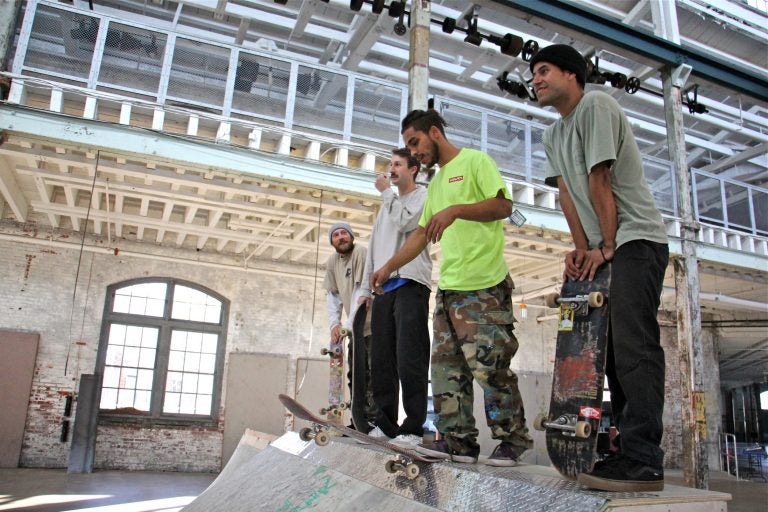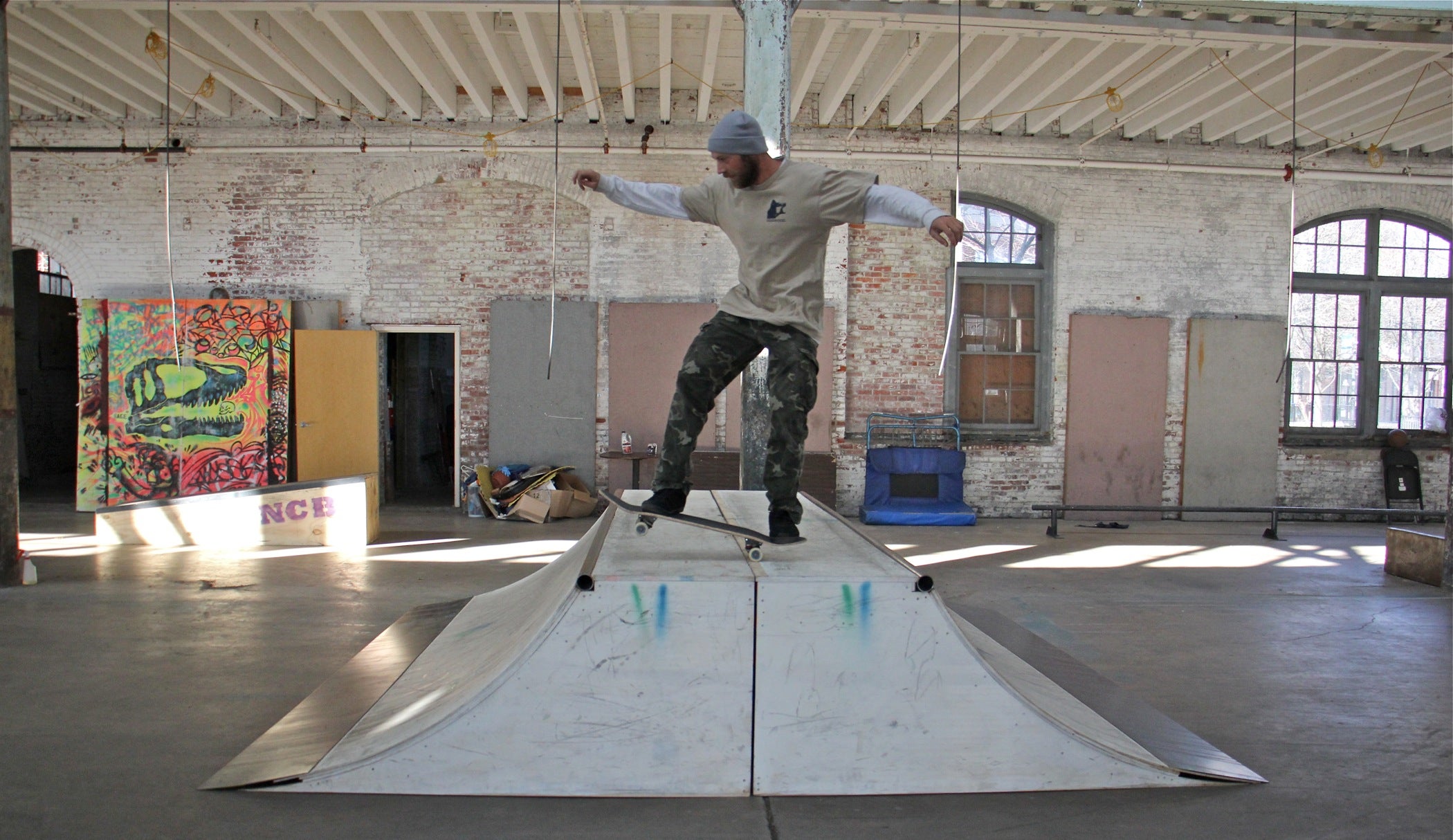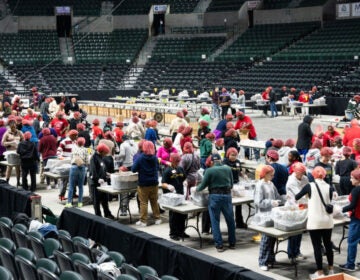Trenton’s historic Roebling building now holds an indoor winter skateboard park
The Freedom Skate Park is an experiment in the public benefits of skateboarding.

Taking a break from assembling ramps and rails, skaters (from left) Tyler Nelson, Jake McNichol, TJ Hernandez Jr., and Enrique Herrera prepare to show off their skills. (Emma Lee/WHYY)
Freedom Skate Park, which is open every Saturday, was created by a nonprofit of the same name in partnership with Trenton’s Department of Recreation. It is the only public indoor skate park in New Jersey.
The concept was tried out last winter with a limited number of ramps for just a few days. The pilot proved to be more successful than expected.
“We had almost 100 people at every event,” said Freedom founder and director Jake McNichol. “Kids from Trenton and all over New Jersey. People came down from New York and up from Philly.”
McNichol started skating on Trenton’s downtown street architecture when he was 12. He now has a job with New Jersey’s Economic Development Authority, but still works his board when he gets a chance.
Those skateboarding opportunities are drying up. McNichol could once name a handful of indoor skate parks in the area, but they all closed down in the last 10 years.
There is still sidewalk skating, sometimes quasi- or outright-illegal, but when winter darkness comes early, it’s hard for adults to skate after work. When winter weather comes, it’s impossible.
“There is a gaping hole in the New Jersey skate community,” McNichol said. “When it snows you can’t skate. When it rains you can’t skate. … There is one park in Hillsborough with lights.”
Trenton Mayor Reed Gusciora will give the skate park his stamp of approval at its official launch on Saturday. It is outfitted with dozens of objects, many of them were professionally built for, and reclaimed from the House of Vans, a major skateboarding pop-up event held last month in Philadelphia.
“We’ve tried to economize the space so you can skate all these things in many ways,” said McNichol, pointing to one object with a Frank Gehry-esque amalgam of competing geometric shapes.
“You’ve got a kicker ramp. If you skate it the other way it’s a wallie,” he said. “You have both sides of the hubba. So you have the kicker to hubba, you can skate down the hubba down the stairs. You can skate the opposite side of the hubba. You can skate up the stairs. You can hit the launch ramp.”
“There are at least 20 ways to skate it, and that’s just me as an average skater off the top of my head,” he said. “As cliché as it sounds: the possibilities are endless.”
McNichol sold his indoor concept as a way to not just give kids something to do with their idle time, but actually improve their minds.

“It’s one of the only spaces where they can freely explore their creativity,” he said. “There’s no one right way to ride a skateboard. It teaches kids to see obstacles in front of them as an opportunity to think creatively, develop their own approach, and succeed by pushing through fear, frustration, pain.”
The skate furniture was built, assembled, and enthusiastically tested by a small crew of volunteers, including Tom “TJ” Hernandez Jr., a lifelong Trentonian who has been skating since he was 9 years old. Two decades later, he is now a sponsored skater — he gets his gear for free — while working construction jobs to make a living.
He knows there is a need for spaces like this.
“These nights will get packed. Especially on cold, winter, crummy nights when it’s raining. People will drive over an hour to get in a session here,” Hernandez said. “Last year, we had women coming from Connecticut to come skate. We had a girl’s night and they drove three hours to come to Trenton to ride skateboards.”
Freedom is designed to accommodate skaters from the first-time novice to the show-off pro. Ambitious skaters live and die by their Instagram feeds: the industrial look of the Roebling Wire Works building will not disappoint.
“This building has history up the wazoo,” Hernandez said. “It’s sad it can’t be utilized more.”
The original Roebling factory was founded by the designer of the Brooklyn Bridge. Most of the Trenton complex is now a shopping center but the Wire Works building remains in a somewhat distressed state. It’s used in the summer months for special events, most notably the Art All Night festival.
A portion of the building is occupied by the Trenton Circus Squad, but most of the building — most of the time — is largely unused.
The building is unheated with numerous broken window panes. As a winter skate park, it makes no promises to be warm, but it will be dry and enclosed.
McNichol hopes to host art and music events alongside skateboarding. Heat, he says, will be generated by the energy of the participants.
“Look, Trenton is a city that’s hitting a turning point. It’s becoming a real hub of creative culture,” he said. “Fun, interesting things are happening in Trenton. Exposing people to that is really important for both skateboarding and also for the city as a whole.”
WHYY is your source for fact-based, in-depth journalism and information. As a nonprofit organization, we rely on financial support from readers like you. Please give today.





